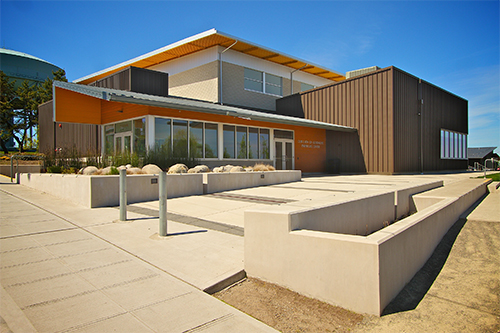Six specialist programs in Music, Art, Library & Technology, Spanish, Social Emotional Learning (SEL) and Physical Education & Health enrich the curriculum and allow our young students to explore the world through different disciplines. Intentional projects and lessons integrate academic subject areas throughout the year, enhancing our thematic curriculum.
Art
Art is incorporated into the classroom learning on an ongoing basis with instruction that exceeds both National and State Visual Art standards. In art class, children learn to convey ideas, feelings, and emotions by creating their own images. Our classes encourage the creative process of every individual student. They explore the historical and cultural messages wrapped up in works of art, as all lessons incorporate art historical and cultural content. They also reflect on the meaning of what they see in art. Students learn to express their opinions and show respect for their own ideas and creations and for those of others. They also develop critical thinking skills and explore and expand individual creative process. They explore a variety of media techniques, and processes in the broad categories of painting, drawing, mixed media, and sculpture.
Library/Technology
The library/technology curriculum builds a foundation for future library and media center use, nurtures an interest in reading, and develops the skills for our young students to become life-long learners. In order for the Library / Technology program to be effective, information and technology skills are taught in conjunction with subject area benchmarks. This requires cooperative planning between classroom teachers and our Library Specialist.
Third graders visit the library weekly as a class group. Additionally, they may visit independently or in small groups. Children get to learn about the many offerings of the school library including check out procedures and library behavior expectations, differentiate between fiction and nonfiction books, identify parts of books and recognize the role of authors and illustrators, choose books from a variety of genres, based on their knowledge of characters, stories, authors, and illustrators, they get exposure to selected authors and illustrators and enjoy stories, songs and book-related social interaction. Our third graders are encouraged to enjoy, value, and embrace books and reading.
Music
The OLG music curriculum, directed by the talented Ann Sager, builds a foundation for creative thinking, problem solving, and lifelong learning in music and other disciplines. Music is a unique way of knowing the world. It is a vehicle for personal expression, common to all cultures, and a doorway into understanding cultural diversity. The nature of musical learning is such that musical understanding is developed and assessed through listening, creating, and performing. Musical thinking supports and connects to other ways of thinking. It is fundamental to developing the whole learner.
Musical learning provides students with the opportunity to experience the aesthetic value of music. Everyone has the ability, and therefore, the right to learn and understand music. Our third graders will sing, dance and play instruments. They will learn solfege, basic music theory and world music with colorful and engaging videos, as well as practice to perform at our Spring Concert, and more!
Physical Education & Health (PE)
Group games and exercises are a great way to help third graders develop new skills. Our PE classes will allow children to walk, run, hop, jump, leap, gallop, slide, skip, turn, side-step, and twist. Kids might try various jump-rope tricks, like running in, jumping, and running out while the rope is still turning. Whether on the outdoor playground or at the gym, they practice balance, sit, kneel, squat, stand, bend, sway, rock, swing, turn, twist, push, pull, running, hopping, jumping, leaping, galloping, sliding, skipping, dodging, landing, turning and side-stepping. Every trip to the playground or gym is turned into a miniature adventure where they get to show off their skill and strength on gym equipment.
Social Emotional Learning (SEL): Second Step
The Committee for Children‘s research-based Second Step® program offers an easy-to-implement, engaging way to teach social-emotional skills and concepts. Second Step programs are designed to help children thrive and be more successful in school -ultimately setting them up to be thoughtful and productive adults. It is a violence prevention curriculum that is used throughout the year to teach responsible, peaceful behaviors and helps make social-emotional learning (SEL) part of children’s daily lives, in and outside the classroom. At OLG, SEL classes, led by our School Counselor, create -from a very young age- a positive systemic change that builds safe learning environments and addresses the needs of children, educators, and communities. In addition, Talking About Touching, developed by The Committee for Children, is an abuse prevention curriculum designed to develop communication skills that can help protect children from sexual abuse. It focuses on teaching children basic skills designed to help them keep safe from dangerous or abusive situations.
Spanish
Although, at OLG, we do everything we can to make learning Spanish fun, we take Spanish for children very seriously. Exposing a child to a second language allows him or her to optimize their learning potential. Our Third Grade students will further their study of grammar, vocabulary and cultures of Spanish-speaking countries. Students improve listening, speaking, reading and writing skills. Students further develop reading comprehension skills through literature, oral presentations and written exercises.
